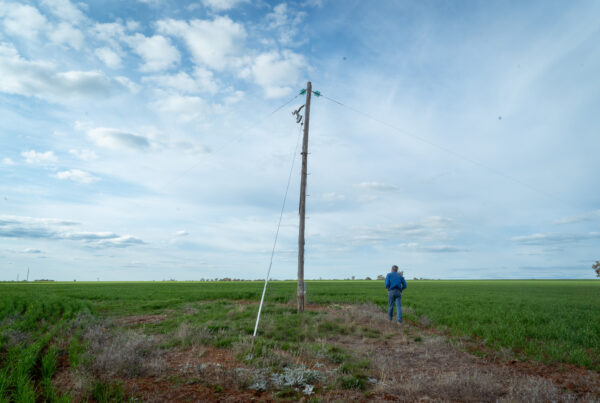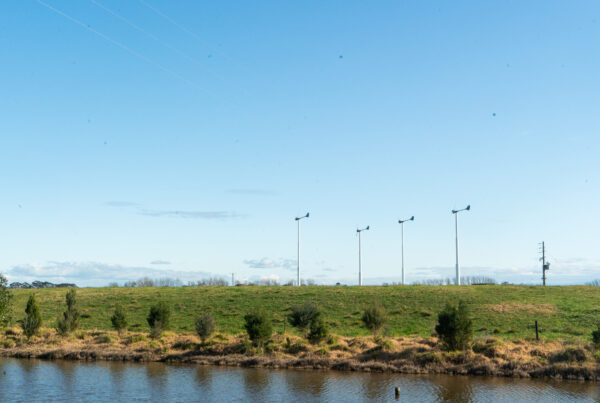30 September 2024
Farmers for Climate Action (FCA) appreciates the opportunity to provide a submission on the development of the legislative rules for the Nature Repair Market.
Key Points
- Please refer to our previous submission on the Nature Repair Market Bill 2023, emphasising the importance of aligning the market with robust environmental outcomes.
- We reiterate our position that the Nature Repair Market must deliver a net positive gain for the environment, ensuring biodiversity benefits are sustained, and are pleased to see this outlined under section 57 of the Act.
- FCA welcomes the inclusion of section 76A of the Act, which prohibits the use of credits for environmental offsetting purposes. This aligns with the views expressed in our survey of over 450 farmers, who support this restriction to maintain the integrity of biodiversity credits.
- Our concerns remain about the implementation of the Nature Repair Market prior to the establishment of Environmental Protection Australia and the passage of crucial reforms to the EPBC Act. These reforms are essential to ensure proper oversight and long–term effectiveness of biodiversity projects.
- Ensuring the Clean Energy Regulator, or similar regulatory body, has the independence to effectively regulate the market, and that there is a robust regulatory framework, is vital to prevent corruption and ensure that the Nature Repair Market genuinely benefits farmers and landholders, and to address inadequacies observed in the carbon farming scheme.
- There is concern that the Nature Repair Market may become a tool used by corporate actors who buy farmland currently used to produce food and fibre and convert it wholly to a crediting project. While we strongly support the right of farmers to farm whatever they want on their own land, the idea of corporations set up to wholly convert dozens of farms to crediting income is problematic.
- Support for smaller landholders is crucial, as they often face challenges in navigating complex biodiversity projects. Tailored assistance can help improve accessibility and understanding of the Market.
- FCA supports the ability of existing projects, and those covered by other schemes and financing to be eligible to participate in the Nature Repair Market, to ensure that farmers and landholders already enhancing biodiversity can be rewarded under the scheme. However, ensuring that projects exceed jurisdictional environmental protection requirements is necessary to meet the goals of the Market.
About Farmers for Climate Action
Representing over 8,300 farmers and backed by well over 45,000 community supporters nationwide, Farmers for Climate Action seeks deep emissions reductions this decade to protect our farmers and our food supply. FCA is made up of farmers, agricultural leaders, and rural Australians who are advocating for strong economy–wide climate policies.
Project Additionality
Ensuring that registered projects exceed requirements beyond Commonwealth, and State or Territory laws is necessary so that genuine biodiversity gains occur because of the Nature Repair Market. Environmental legal requirements establish a baseline which provides a minimum biodiversity protection. Incentivising project proponents to meet this base requirement does not assist in achieving the goals of the Act of creating biodiversity improvements, thus additionality beyond environmental protections laws is necessary.
Further, FCA supports existing projects being eligible to participate in the Nature Repair Market. Many landholders and farmers have already undertaken significant biodiversity conservation and restoration activities, often at their own expense. Allowing these projects to participate will encourage further efforts and ensure that early adopters are recognised for their contributions. It will also ensure that there is a continued incentive to protect areas of biodiversity restoration. FCA is also supportive of allowing project stacking under the Nature Repair Market, where such stacking would not lead to double counting of biodiversity credits, and lead to enhanced outcomes for biodiversity. Further, the ability of projects to access other financing through grants, or nature repair funds will ensure that cost is not prohibitive to participating in the market and is welcomed.
Exclusion of certain projects from the Nature Repair Market, in line with those that are not able to be registered under the ACCU Scheme will ensure perverse biodiversity outcomes do not occur because of the establishment of the Nature Repair Market. Ensuring that a project which seeks to plant a Weed of National Significance cannot occur is paramount to protect both biodiversity of an environment, and biosecurity for agriculture. Further, restricting the registration of projects on land cleared and wetlands drained within the last 15 years, will disincentive the knowing destruction of such habitats so that they can be a project under the market. However, ensuring that repair of this environment occurs is necessary, FCA recommends that where such an issue arises that the Market regulator, and yet to be established federal Environment Protection Australia, or state environmental authority work closely to seriously penalise the destruction of a habitat, and ensure its restoration. Thus, FCA strongly suggests that the Nature Repair Market implementation occur alongside, or after the passage of the reforms to the EPBC Act and the establishment of EPA.
Regulatory Requirements
Maintaining strong regulatory frameworks behind the Nature Repair Market will ensure project proponents, and projects are effective and maintain the goal of improving biodiversity. The Clean Energy Regulator, as the overseer of the Nature Repair Market, must be independent and allowed to operate to meet the goals outlined in the Act. In relation to allowing the regulator to set additional audit requirements would work to ensure market integrity. Such additional auditing may be necessary in cases where there are concerns about project compliance, biodiversity outcomes, or significant discrepancies between reported and observed biodiversity outcomes. While proponent consent should be sought where possible, it is important that the regulator has the flexibility to act independently to ensure the integrity of the market. Such a proposal would provide an additional layer of oversight and help address any emerging risks or concerns regarding project implementation.
Ensuring that mandatory information requirements at the application stage is crucial for transparency and ensuring that projects are thoroughly assessed from inception. Comprehensive details about project objectives, methods, and expected biodiversity outcomes are necessary to ensure that farmers and project proponents understand what is required from the outset.
While FCA understands that at times project proponents may be required to transition to new or varied project methods, due to variations in the legislative regulations. Where this occurs it is vital that the new methodology does not diminish biodiversity outcomes expected under the project, require drastic changes to land use, or place an increased burden on proponents. Forcing transition and variation where unnecessary could create administrative burdens and discourage participation, particularly for smaller landholders or projects that are already achieving success.
Offsetting
FCA welcomes that the Nature Repair Market will no longer allow offsetting of purposes relating to environmental requirements and restoration. The amendment under section 76A of the Act aligns with views expressed in an FCA survey of over 450 farmers where only 16% indicated they supported offsetting. Prohibiting offsetting ensures strong integrity of the Nature Repair Market and allows the scheme to meet its goal of enhancing biosecurity. FCA thanks the government for listening to the concerns of farmers.
Land Use and Landholders
FCA emphasises the concerns of many farmers that large corporations, in an effort to appear more environmentally friendly and sustainable, are buying productive farmland and converting them wholly to crediting projects. This approach may have the perverse outcome of reducing food and fibre production on such land. FCA calls on policy makers to promote the achievement of environmental, economic, and productive outcomes.
There should be an emphasis on allowing access of farmers, especially smallholders, to the Nature Repair Market. This will ensure that all landholders are incentivised to repair lost biodiversity on their property, and provide diversified income streams as climate change causes more uncertain production seasons. Providing educational resources and clear communication about the Nature Repair Market is essential for fostering farmer engagement and ensuring informed participation. Further given the requirements for regulatory information, to ensure market integrity, assisting farmers to understand requirements and market operation will allow equitable participation. This could be services through extension work by the regulator, or through the number of extension activities already occurring on farms.
Conclusion
Given farmers’ participation is an essential requirement for Nature Repair Market policy success, it is equally essential that farmers are actively engaged in shaping such legislation. In addition, farmers’ insights and experiences are invaluable for developing fit for purpose policies that work. Farmers for Climate Action supports the establishment of the Nature Repair Market, which benefits farmers and the environment, and encourages the government to prioritise the recommendations outlined above.
We look forward to continuing to work with the government on the establishment of the Nature Repair Market.
Yours sincerely,
Natalie Collard
CEO
Email: [email protected]
Phone: 1800 491 633
Web: farmersforclimateaction.org.au
Post: FCA C/- Melbourne Connect Co-Working, Lvl 2 700 Swanston Street, Carlton VIC 3053






